Is there a difference between CARING and EMPATHY
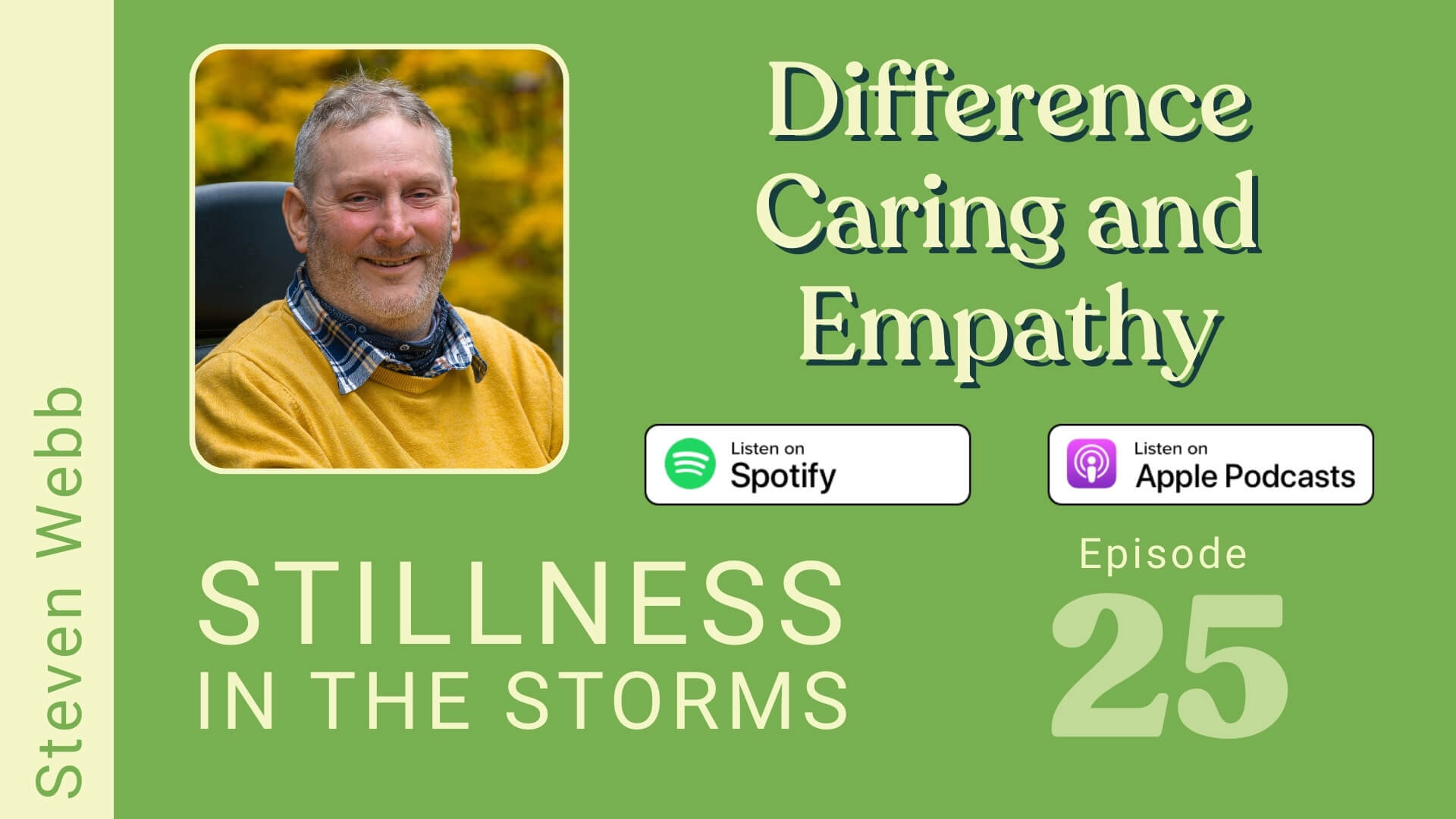
Is there a difference between caring and empathy? Everybody believes they are caring, and almost everybody I talk to believes they have some form of empathy. What is the difference between empathy and caring? And does everybody really have both?
The TRUTH behind your 'SPIRITUAL JOURNEY' and you may not like it!
Links to Steven Webb’s podcast and how you can support his work.
- Donate paypal.me/stevenwebb or Coffee stevenwebb.uk
- Steven’s courses, podcasts and links: stevenwebb.uk
Is my meditation working? That’s the big question we tackle today. We dive into a cute story about Toad and Frog, where Toad gets a bit too anxious about his seeds growing. It turns out, just like in meditation, growth takes time and nurturing. We chat about how trying to force the process can lead to suffering, and how letting things happen naturally is key. Meditation isn’t about getting somewhere fast; it’s about being okay with where you are and allowing your inner garden to flourish at its own pace.
Takeaways:
- Meditation is not about creating peace, but allowing things to simply be.
- The spiritual journey is about recognizing our attachments and letting go of expectations.
- Toad’s experience illustrates that growth takes time and nurturing, just like meditation.
- We often suffer because we want our meditation to yield specific results or outcomes.
- Inner peace comes from understanding feelings without needing to eliminate them entirely.
- The essence of spiritual practice is about living with acceptance, not striving for achievement.
Meditation is often a journey of patience, much like the story of Toad and Frog, where the focus isn’t on immediate results but on the process of growth. Toad, eager to see his garden bloom, learns a crucial lesson about allowing things to unfold naturally. He shouts and frets over the seeds he has planted, wanting them to sprout quickly. Frog wisely advises him to let nature take its course. This mirrors our expectations in meditation and spiritual practices. We often strive for quick results, wanting to feel enlightened or peaceful right away, but true growth requires time and nurturing. It’s not about forcing experiences but rather about being present and allowing them to happen in their own time. We explore how this relates to our own meditation practices, stressing that the journey is about acceptance rather than control. This episode emphasizes that understanding this can lead to a deeper, more meaningful practice and ultimately less suffering on our spiritual paths.
The TRUTH behind your ‘SPIRITUAL JOURNEY’ and you may not like it!
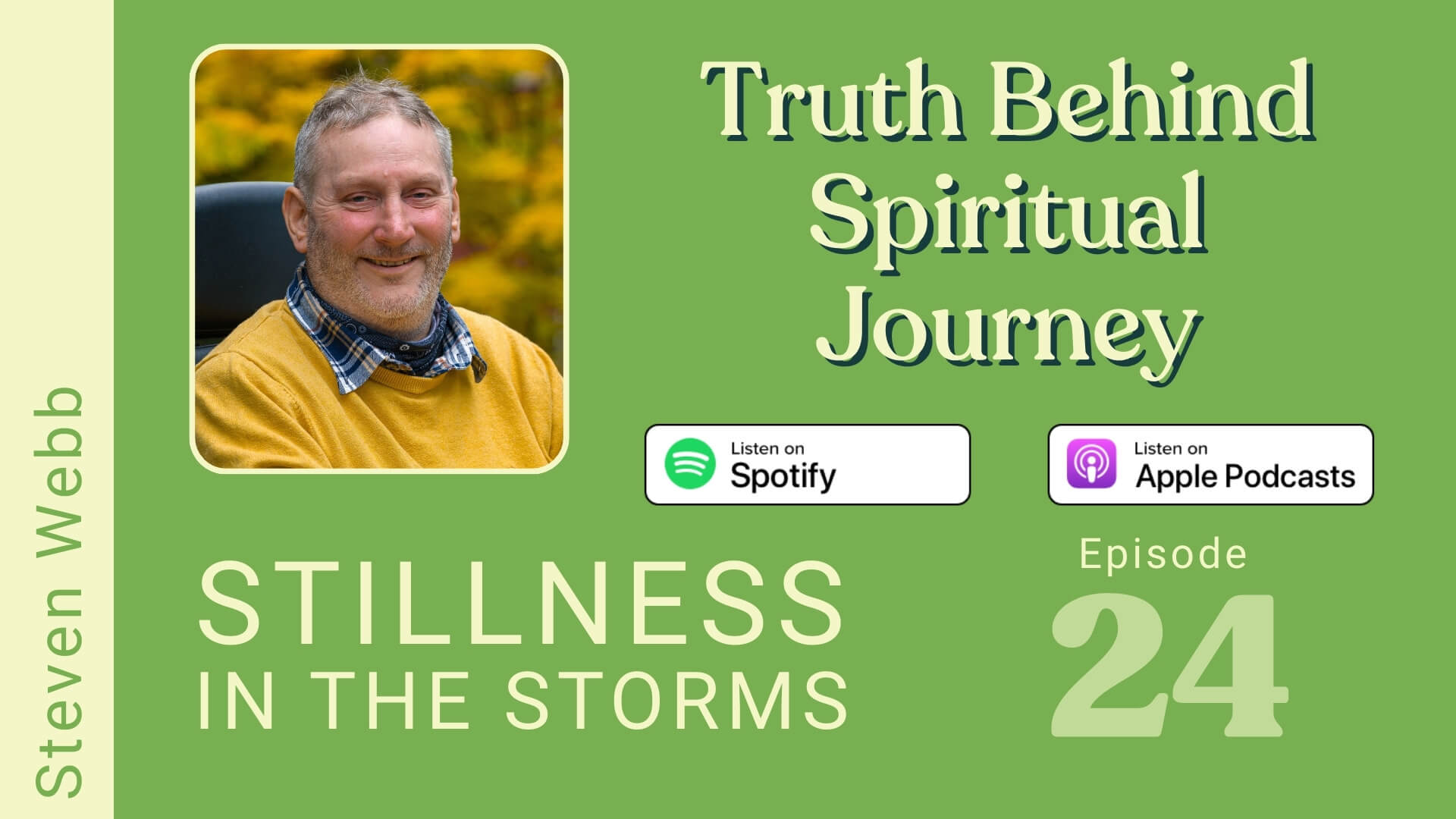
The spiritual journey is not easy, and there is so much information out there telling you that with a little effort you can find inner peace. Is that really the case?
3 Things We ALL NEED to GET THROUGH this Together
Links to Steven Webb’s podcast and how you can support his work.
- Donate paypal.me/stevenwebb or Coffee stevenwebb.uk
- Steven’s courses, podcasts and links: stevenwebb.uk
We dive right into how to tackle the tough times we’re all facing during lockdown. I’ve got three key things we can focus on: understanding, compassion, and patience. It’s crucial to remember that we’re all feeling the stress and it’s not easy being cooped up together. I share some practical tips to help ease the tension at home, like setting boundaries and finding ways to calm down when things get heated. By tapping into these values, we can navigate this challenging period with more peace and connection.
This is a difficult time for all of us, not only difficult unusual and we are thrown in circumstances we never thought we would be in. However, there are three things that can help us through this together. Keep your relationship intact, your children balanced, and your family together.
Lockdown can be a tough time for all of us, and in this episode, I dive into the reality of being confined with our loved ones. I talk about how this unprecedented situation can either bring families closer or create friction. We’ve all heard the saying that absence makes the heart grow fonder, but spending 24 hours together can lead to misunderstandings and arguments. I share my thoughts on three core values that can help us navigate through these challenging times: understanding, compassion, and patience. By fostering these values, we can reduce stress and create a more peaceful home environment. I emphasize the importance of recognizing that everyone is dealing with their own struggles and that we should approach each other with kindness and patience. Additionally, I provide practical tips for maintaining harmony at home, such as setting boundaries and using simple signals to de-escalate potential arguments. Overall, the message is clear: during lockdown, let’s focus on understanding and supporting one another to make the best out of a tough situation.
Takeaways:
- In times of lockdown, we need to understand ourselves and each other better.
- Being together 24/7 can be challenging, leading to arguments and stress at home.
- Compassion is essential; everyone is struggling in their own way during tough times.
- Having patience with family is crucial to navigate through this unique situation well.
3 Things We ALL NEED to GET THROUGH this Together
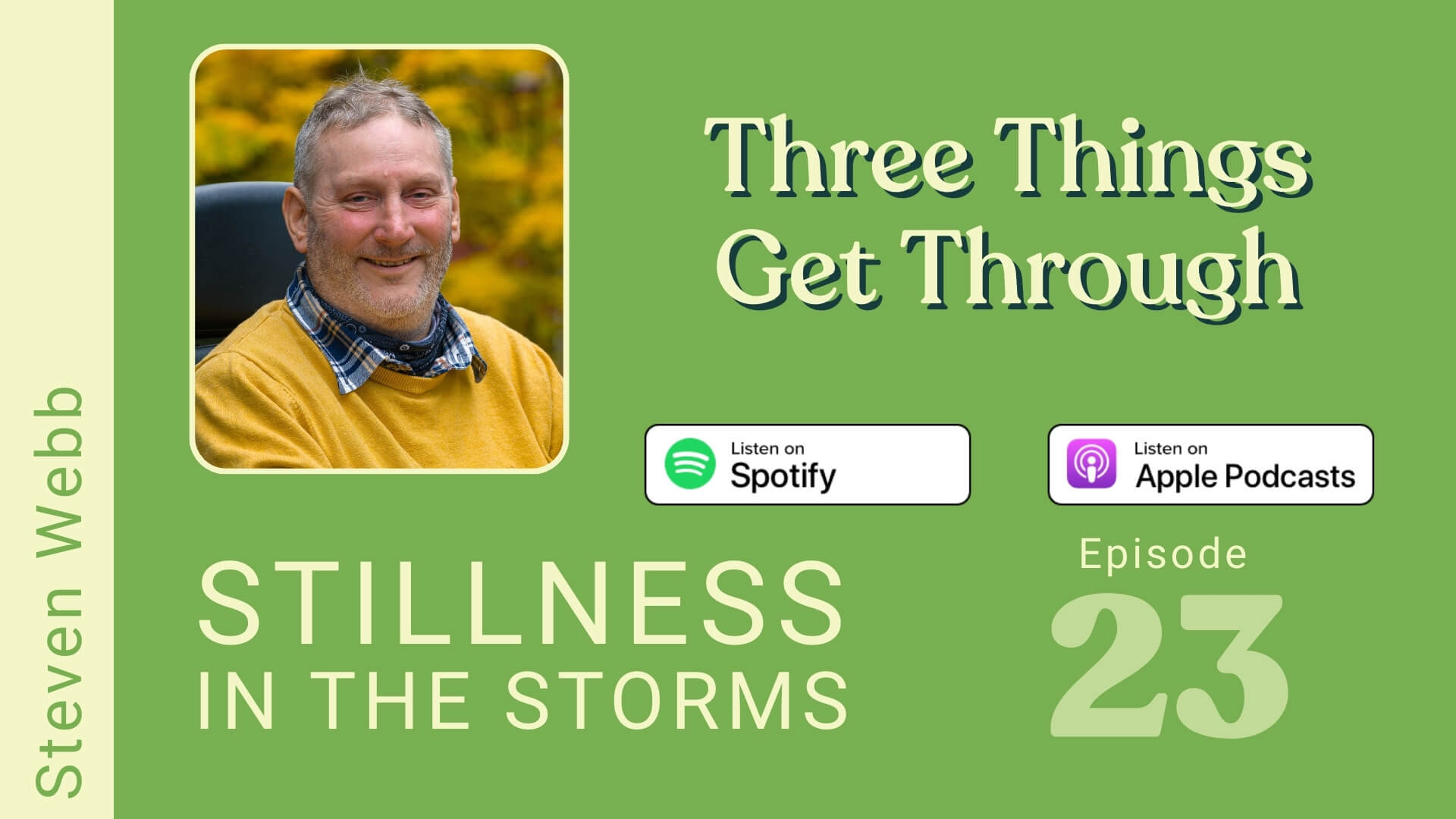
This is a difficult time for all of us, not only difficult unusual and we are thrown in circumstances we never thought we would be in. However, there are three things that can help us through this together. Keep your relationship intact, your children balanced, and your family together.
How To FACE Your FEAR And ENJOY Inner Peace
Links to Steven Webb’s podcast and how you can support his work.
- Donate paypal.me/stevenwebb or Coffee stevenwebb.uk
- Steven’s courses, podcasts and links: stevenwebb.uk
We’re diving deep into the emotions we all feel, especially fear. Fear isn’t just a negative feeling; it’s something we need to acknowledge and understand. We talk about how denying our emotions can lead to more suffering, and how it’s important to face them head-on. I share my journey of fear, optimism, and the desire to run, even when I can’t. It’s all about being honest with ourselves and recognizing that feeling scared is totally okay. Let’s embrace our emotions and learn how to turn fear into something powerful together.
Acknowledging fear can be a powerful catalyst for change. I share my personal experiences, exploring the complex emotions that arise during unprecedented times. Fear isn’t just a negative feeling; it’s a signal that encourages us to act and respond. We discuss the importance of recognizing our emotions rather than denying them. It’s crucial to allow ourselves to feel fear, optimism, hope, and love simultaneously. I emphasize that these feelings are part of our human experience and can lead to deeper understanding and connection with ourselves and others. By embracing fear, we can transform it into courage, allowing us to navigate life’s challenges more effectively.
Life can feel overwhelming, especially when faced with uncertainties. I look back on my journey, particularly after a life-altering event, and reflect on how I longed for the simple freedom of running. This desire symbolizes a deeper yearning for freedom and the ability to express ourselves fully. I draw parallels with the famous character from ‘Forrest Gump,’ highlighting the urge to run as a metaphor for escaping fear and embracing life’s journey. Acknowledging our fears and desires can lead to personal growth and resilience. This episode encourages listeners to confront their feelings and use them as tools for empowerment and connection.
In a world filled with anxiety and fear, it’s essential to understand the role these emotions play in our lives. I argue that fear is a natural part of the human experience and should not be dismissed. Instead, we should recognize it as a motivator for action. Throughout the podcast, I advocate for honesty about our emotions, promoting a culture where we can share our fears without shame. By doing so, we not only validate our experiences but also create a supportive community. We talk about the transformative power of love and how it can coexist with fear. Ultimately, the episode encourages a balanced approach to our emotions, urging listeners to embrace vulnerability as a pathway to deeper connections and a more fulfilling life.
Takeaways:
- It’s totally okay to feel scared and frightened right now; we’re all feeling it.
- We shouldn’t ignore our emotions; instead, we need to understand and acknowledge them.
- Fear can be a powerful motivator and can lead to positive action if we embrace it.
- Living authentically means being honest about our feelings, which can reduce our suffering.
How To FACE Your FEAR And ENJOY Inner Peace
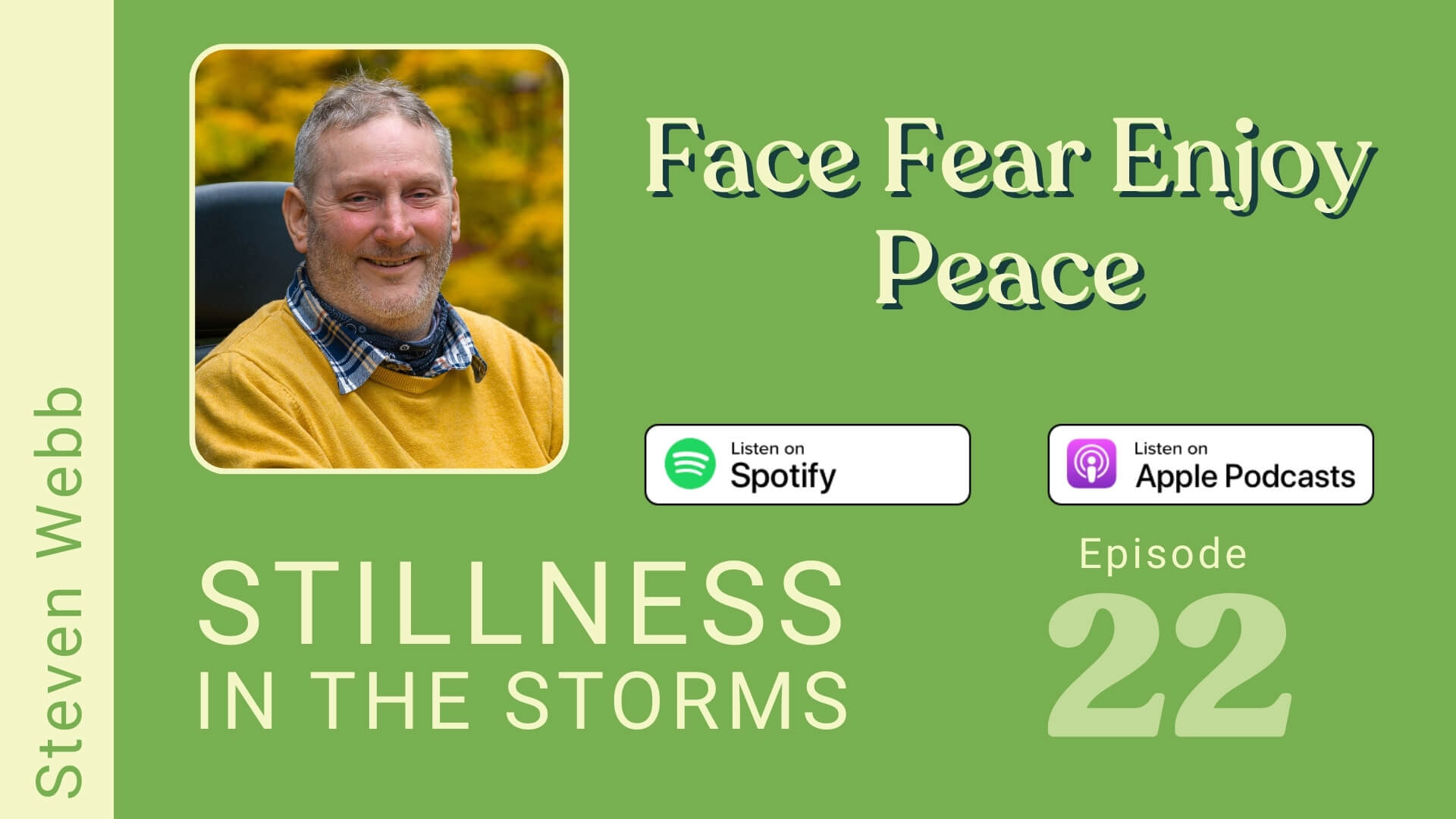
I believe we are all frightened at times. In this episode I talk about how we can embrace our fear rather than try to dismiss it and push it away.
I’m Steven Webb your host and I’ve faced a lot of fear in my life, and I share how you can embrace yours and overcome it.
The Three Cultural Poisons and Coronavirus Covid-19
Links to Steven Webb’s podcast and how you can support his work.
- Donate paypal.me/stevenwebb or Coffee stevenwebb.uk
- Steven’s courses, podcasts and links: stevenwebb.uk
We’re diving into some interesting topics today. We focus on the importance of staying curious and open-minded. It’s all about exploring new ideas and perspectives. We share our thoughts on how curiosity can lead to personal growth and better understanding of the world. Join us as we discuss ways to keep that curiosity alive in our daily lives.
Takeaways:
- In this episode, we talked about the importance of recognizing our own biases in decision making.
- We discussed how communication can often be misunderstood and how to avoid that.
- There are different strategies to improve our productivity and make the most of our time.
- It’s essential to prioritize mental health and take breaks when needed for well-being.
- We explored how setting clear goals can help us stay focused and motivated.
- Staying open to feedback is a key part of personal and professional growth.
The podcast dives into the intricate world of asset generation, exploring how to create various digital products that can enhance user experience and drive engagement. We start by discussing the importance of understanding your audience’s needs and preferences. By tailoring our assets to what users truly want, we can create more effective and impactful content. This is not just about making pretty pictures or catchy slogans; it’s about strategic thinking and planning. We emphasize the need for thorough research and analysis before jumping into production, as this groundwork lays the foundation for successful asset creation.
Next, we shift gears and talk about the actual production process. We share our experiences with different tools and platforms that can help streamline the creation of assets. From graphic design software to project management tools, we highlight what works for us and what doesn’t. The conversation also touches on the importance of collaboration and feedback, as working with a team can lead to innovative ideas and improvements. It’s a reminder that asset generation is not a solitary journey; it thrives on input and creativity from multiple sources.
Finally, we wrap up with a discussion on measuring success. How do we know if our assets are doing their job? We explore various metrics and key performance indicators that can help us evaluate the impact of our efforts. Whether it’s user engagement rates or conversion metrics, understanding these numbers can guide us in refining our future projects. This episode is a comprehensive look at the multi-faceted approach to creating meaningful assets, reflecting our commitment to quality and user satisfaction.
The Three Cultural Poisons and Coronavirus Covid-19
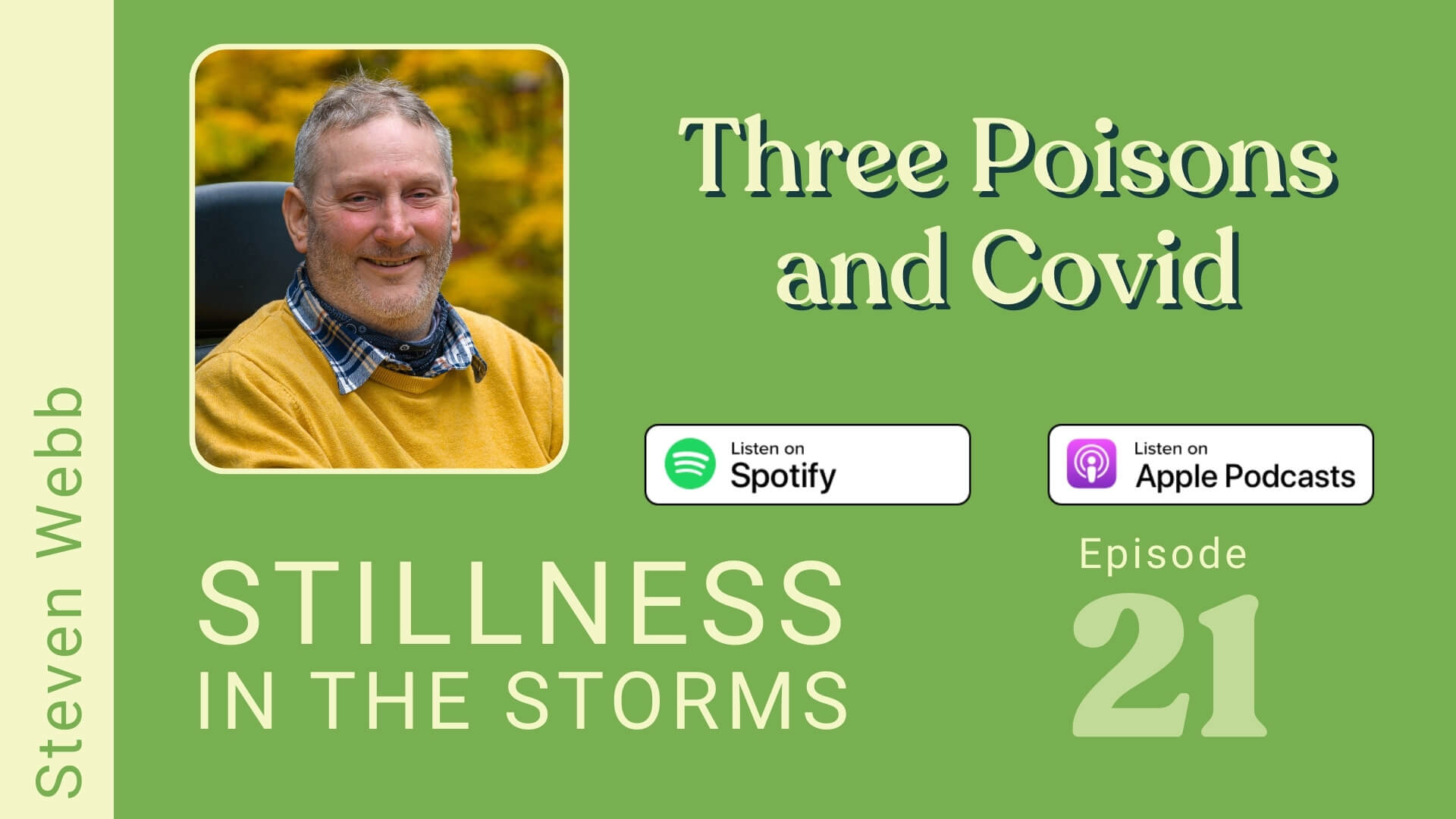
Let’s talk about the three cultural poisons and how it showing up everywhere in the world right now with the coronavirus and Covid 19.
I’m your host Steven Webb let’s take a different approach on living deeper lies.
Where is HAPPINESS?
Links to Steven Webb’s podcast and how you can support his work.
- Donate paypal.me/stevenwebb or Coffee stevenwebb.uk
- Steven’s courses, podcasts and links: stevenwebb.uk
Happiness is right here, right now, and it’s not about chasing after big thrills or fancy things. We dive deep into the idea that happiness isn’t a destination; it’s a feeling found in the everyday moments. The podcast lays out how we often look for happiness in external achievements or pleasures, but really, it’s about embracing the mundane—like doing the dishes or taking a deep breath. We talk about how happiness is actually about the absence of both longing for pleasure and pushing away pain. So, let’s explore together how to recognize and appreciate the simple joys of life that keep us grounded and fulfilled.
Finding happiness isn’t as straightforward as we might think. It’s not a destination we reach or a prize we win; it’s a feeling that lives within us, often hiding in the mundane moments of our lives. In our podcast today, we dive deep into this concept, exploring how happiness is frequently mistaken for external achievements or pleasures. We discuss how people often attribute their happiness to things like promotions, new relationships, or social media validation, but the truth is that true happiness exists on a different level. It’s not found in the highs of life but rather in the simple, everyday moments that we often overlook. We challenge listeners to consider what happiness means to them, emphasizing that it’s about the absence of problems and pleasures rather than the pursuit of them. The episode encourages a shift in perspective, inviting everyone to find joy in the present moment and recognize that happiness is not something we need to chase after, but rather something we can cultivate right here and now.
Takeaways:
- Happiness is not a destination or an external thing; it’s a feeling we have within ourselves.
- Many people confuse happiness with temporary pleasures, but true happiness lies in the mundane moments of life.
- To find happiness, we need to focus on the absence of both pain and excessive pleasure, embracing the ordinary.
- Recognizing that happiness exists in the present moment is key to feeling content and fulfilled in life.
